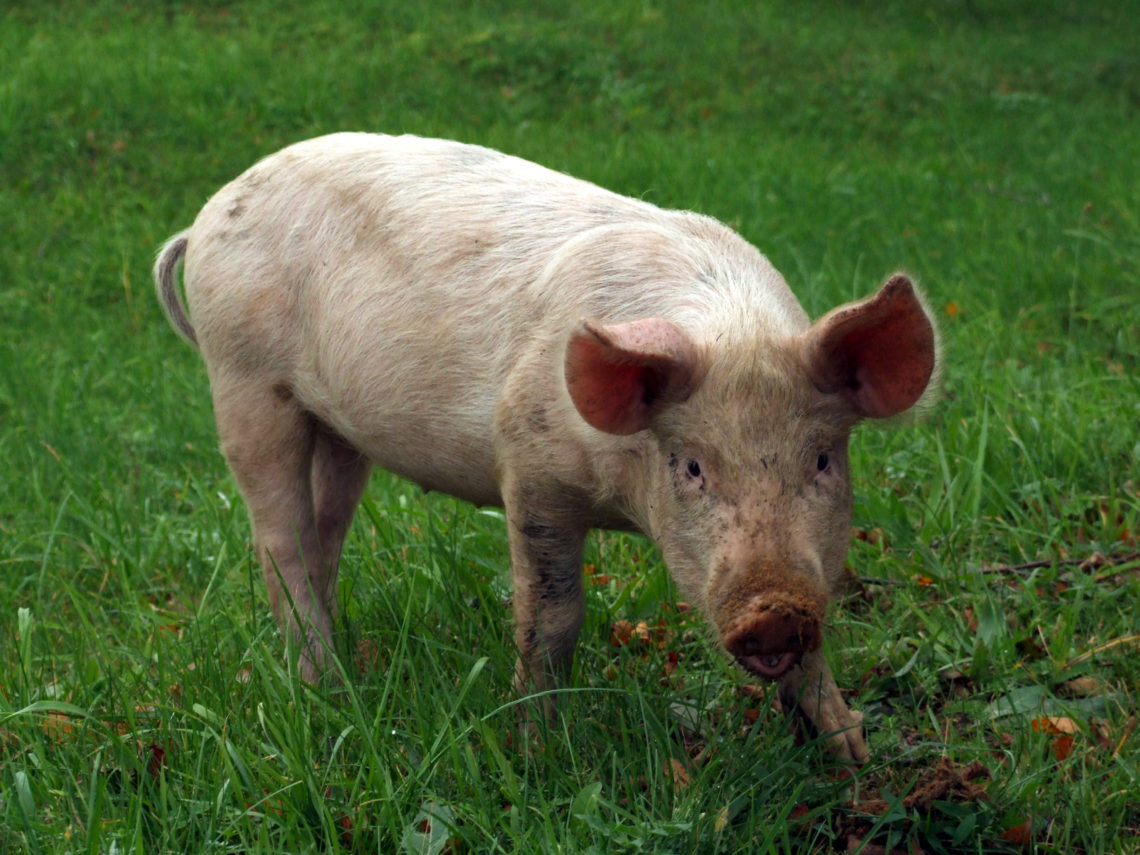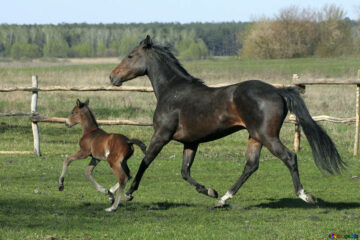Raising Pigs for Meat on a Family Farm
When choosing animals for your farm, deciding on raising pigs for meat is a great choice. They are probably the one of the easiest animal to raise. Pigs grow to maturity much faster than beef cows and provide far more meat (and lard) than chickens.
Research
As I always emphasize…do your research! Different breeds of pigs have different qualities, including differences in size, meat quality and temperament. When raising pigs for meat, you will want to investigate these things before choosing your piglets.
When to Buy
Piglets should be purchased at about 8 weeks of age, even though the industry standard is only 6 weeks. All animals have stronger immune systems when they have been allowed to be nursed for a longer period of time. When piglets are allowed to remain with the sow for two extra weeks, the health benefits are immense.
Shelter
Before you bring home piglets you need to have a pen and some sort of shelter. Piglets will grow faster in a smaller pen because they will have less space to exercise. Do bear in mind though that parasites have more opportunity to grow in a small pen. A small pen is bound to cause the land to be thoroughly torn up and will turn into a mud pit when the weather gets wet. It is best to use rotating locations in the warm months of the year and move the pigs to a larger areas in the cold months, when raising pigs for meat.
Training
When piglets are young, it’s best for them to be in a cattle panel, hog panel or pallet pen. Wire doesn’t work well with small piglets because they can wiggle out quite easily. Piglets can be kept in a small cattle panel pen with electric wire on the bottom until they are about 12-15 weeks old and then transfer them into pens made with electric string or wire. As the piglets mature, they will become accustomed to avoiding the electric wire and won’t try to escape once trained. Create an exit area once the pigs are trained.
Food
One of the reasons pigs are easy to care for is the variety of food they can be fed. It is not difficult to create your own healthy feed that won’t contain medications and filler. When raising pigs for meat, you can make the feed from a grain and protein source, or find a natural pre-made feed in your area. In addition to pre-made feed, pigs love all types of produce. You can even grow crops specifically for your pigs like turnips, beets and peas, pumpkin and apples. Combine barley, vegetables, table scraps and swine minerals and you will have a well fortified diet. Fresh milk is an ideal protein source, and pigs love it! Remember that if you want the pigs meat to be as healthy and as tasty as possible, stick to the good, healthy, all natural basics.
An important decision you will need to make is whether to feed on demand or feed a set amount daily, when raising pigs for meat. Pigs who are demand fed tend to grow faster so your time to maturity is less. Demand feeding lessens the daily workload but greatly increases the expense of feeding. As pigs become larger they can have ravenous appetites. If you are only raising a couple of pigs for family consumption, demand feeding is no problem, however, if you are raising more pigs it may be preferable to feed a set amount daily. You should plan to feed your piglets approximately 5 lbs of grain mixture, as well as vegetables, table scraps and milk, each day. Market weight is usually reached when the pig is about 8 months old.
Raising for Meat
For someone interested in just raising pigs for meat, this example will give you some perspective. For a family of three or four, one pig will provide quite a bit of meat. A 200 pound pig yields about 55 pounds of hams and shoulder, 40 pounds of bacon and loin, plus lard, sausage, pig’s feet, etc.(according to an article written by Ed Robinson in Mother Nature News)
Try to use natural medicines as much as possible. Remember you and your family will be ingesting everything your pigs do. Garlic granules in their feed is very effective as a de-wormer. Oregano oil is fantastic for fighting parasites and infection. Geranium essential oil is a ideal for stopping minor bleeding, and tea tree oil works best for cuts and scrapes.
It is a wonderful thing to be able to raise your own pork. It is rewarding for the exceptional quality you are able to provide for your family. The taste is second to none; not at all like the store bought version. Finally, pigs are a great deal of fun and watching them play and interact with each other is a joyful experience!




